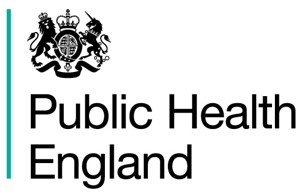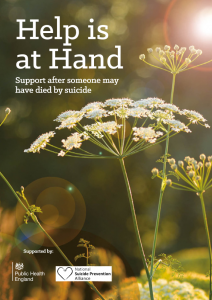
Every suicide is a tragedy – not just for the person who loses their life, but for their friends, families and communities says Professor Kevin Fenton, Health Improvement and Population Healthcare Leader at Public Health England.
And empowering communities through collaboration was the focus of the recent National Suicide Prevention Alliance conference.
For loved ones left behind, there can be many unanswered questions, as the factors leading to someone taking their own life are varied and often complex.
Official statistics released today show a 2% decrease in the number of suicides in the UK from 2013 to 2014, but with more than 6,000 suicides in 2014, it is vital that we collaborate efficiently and effectively to ensure fewer lives are lost.
According to the new figures, the male suicide rate is more than 3 times higher than the female rate, with 16.8 male deaths per 100,000 people compared with 5.2 female deaths. The highest suicide rate for both male and females was in people aged 45-59.
At Public Health England (PHE), preventing suicide is a major programme of work, and one that requires close partnerships with a broad range of stakeholders.
We need to take a whole systems approach – across government departments, the health service, the voluntary sector, schools, businesses, industry and the media. The police service and prisons also have vital roles to play.
There are already some great examples of collaborative working out there. Three Samaritans branches have joined up with the North Essex Partnership University NHS Foundation Trust. Together, they have developed a range of opportunities for patients and staff to benefit from their services, such as having a Samaritans presence in emergency departments and establishing referral pathways between Samaritans and local GPs.
 Suicide is not inevitable, and at PHE we will continue to support the public health system to improve care for people in crisis. We offer a range of resources to support local areas, which have a huge amount to contribute to saving lives. PHE’s suicide prevention portal brings together a range of resources to support this work.
Suicide is not inevitable, and at PHE we will continue to support the public health system to improve care for people in crisis. We offer a range of resources to support local areas, which have a huge amount to contribute to saving lives. PHE’s suicide prevention portal brings together a range of resources to support this work.
Our suicide prevention profile is a good place to start. The data can help local organisations to see which risk-factors are particularly relevant for their area, helping them to understand the local landscape and respond accordingly.
The cross-government National Suicide Prevention Strategy calls for all local areas to develop a local suicide action plan. PHE has published guidance to help readers identify high risk groups and locations, engage with local media and work on local priorities to improve mental health.
Having a local action plan will help map current practice and identify gaps in service provision, plan future services and build links with local health and wellbeing boards.
 Suicide can have a profound effect on family, friends and the local community, and a suicide prevention strategy should consider what resources and support are available.
Suicide can have a profound effect on family, friends and the local community, and a suicide prevention strategy should consider what resources and support are available.
A good example is Help is at Hand, a resource for people bereaved by suicide. Local authorities should make sure this information is distributed to the police, ambulance staff and other organisations that are likely to have first official contact with someone affected by suicide.
Different areas have different needs and risk-factors for suicide are wide-ranging and complex. Preventing suicide is vital, but there is no simple formula. We will only save more lives if we work together.
4 comments
Comment by Helen posted on
Do you have any guides for children/young people who threaten suicide? Many thanks.
Comment by termite posted on
No matter what is claimed to be in place to help folk, when you really need help it just isn't there.
Folk just don't understand the battles we face, phone Samaritans, they talk, but when you put the phone down, we are once again alone with our troubles!
Mental health services are NOT available at weekends and Bank Holidays, often out most desperate time.
If you get through to anyone on a phone, you have to wait fro them to call you back ... then it is too late.
Going to A&E, not the best place to receive any decent level of understanding,but when you are that depressed and desperate, simply making the efforts to make the journey to A&E is more than we can cope with.
Why isn't the help there before we reach these desperate situations?
Where do all the so called psychiatrists hide, we only ever get to see nurses ... who are not doctors ... so if they can do the job of a psychiatrist, why not get rid of psychiatrists and put in more support services?
Mental health care needs a revolution!
Comment by Tony Bird posted on
Please do not forget the work done to prevent suicides by the The Mens Cree clubs in the North East of England
Comment by Jacqui Biddiscombe posted on
Maybe when people have mental health issues people need to hear what they are saying and not throw them back out on the streets, the next thing is a call from CID stating they are searching the local rivers for a body.